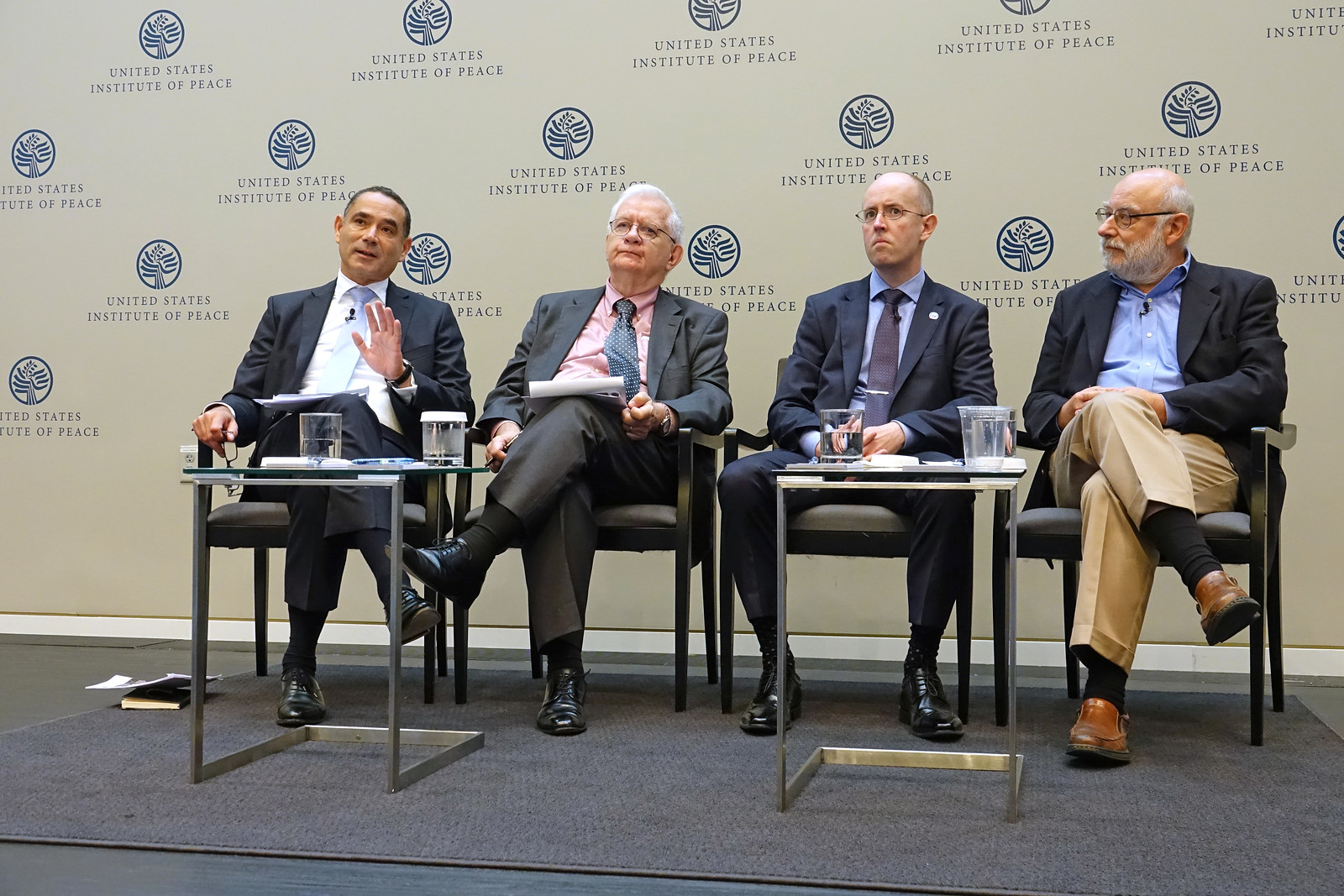News Article
Marc Sageman and Dale Eickelman at the Resolve Forum 2017

This post first appeared on the IPEV-FSMH website. You can view it here.
Focus on the Roundtable "Exiting Violence" at the Resolve Forum 2017
The Resolve Forum 2017 "Confronting the Next Wave of Violent Extremism" took place in Washington D.C. at the United States Institute of Peace and brought together researchers and experts on violent extremism to discuss issues such as the risks in hotspots across Asia, Africa, the Middle East and Europe.
IPEV participated to the event and specifically took part in the panel discussion “Entering and Exiting Violence”. Marc Sageman, member of the working group “Between Salafism, sectarianism and violence: the new faces of radicalism”, and Dale F. Eickelman, member of the International Advisory Board participated to the debate with John Horgan, professor, Global Studies Institute. The different perspectives (sociology, anthropology, psychology) encouraged a rich discussion around exiting violence.
Ivo Veenkamp, Deputy Executive Director at Hedayah, introduced the panel highlighting the importance of understanding what could happen after ISIS. He raised a serie of questions: what about peace in Syria and Iraq? Can ISIS move to other places? Why do people join them? How to deal with returnees? Is there a possibility to at least work with them? Ivo Veenkamp also mentioned the necessity to understand the process of radicalisation.
Dale F. Eickelman first underlined the fact that, if different disciplines all agree on many things, there is a great divides between research and people doing political intelligence. He also suggested the importance of taking into account the communities and to encourage them to cooperate and dialog with authorities. For him, it is necessary to empower those communities and to give them room to protect their members.
Lastly, M. Eickelman pointed out the fact that looking at the changing notions inside terrorist groups' discourse to reach an audience was necessary.
For John Horgan, we do know a certain number of elements regarding extremism. For example, we know that there is no clear profile defining radicalized people. Reasons for engagement are also known; Horgan listed a serie of factors leading to extremism, as grievances and moral outrage. However, for him, ideology has a misunderstood role in it, which leads to underestimate what he calls "little factors". The challenge is still to appreciate how they can change over time. We need to harness their predictive value, and "Science is nowhere near in enabling us to ascertain what drove these individuals to those groups in the first place".
To conclude, John Horgan suggested to consider the use of the disillusionment of returness in their narratives for two things: trying to facilitate disengagement, and making those narratives known to prevent extremism.
Marc Sageman started his intervention by highlighting a lack of conceptual framework in which we could understand "what we know" about these issues. For him, we are prevented from doing this by the concepts we use like "violent extremism", a terms that lack of clear definition. Sageman then mentioned a problematic stagnation in research because most research on the topic is funded by the State.
He listed three main factors for radicalisation: the escalation of conflict between the state and the stigmatised community, the disillusionment of people of the community understanding they can not redress grievances by legal means, and moral outrage. Those factors can lead to volunteer to become "soldiers" to protect the community. That is why, for Marc Sageman, a profile does exist for extremists, but with no indicators; and being a soldier is a characteristic of this "objective" profile.
Sageman finally recommended to isolate violent individuals, to encourage the community to disavow violence as ineffective and to integrate this community into society.
The whole live video is available on the Resolve Network website. A short video of the panel discussion will soon be released.
For any further media inquiries please contact resolve@resolvenet.org